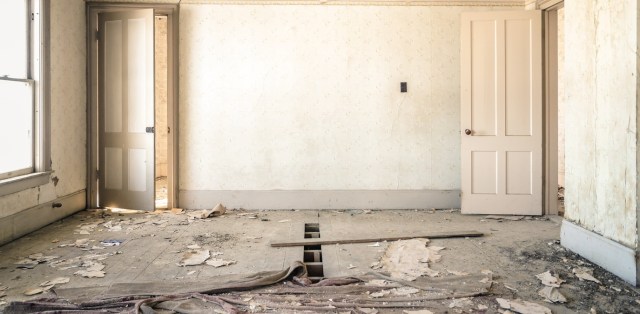
Yesterday John Pavlovitz published another blog post on the topic of hell. He entitled his latest post, “No Christian, We Don’t Deserve Hell (And We Probably Needn’t Worry About It),” and the feature image appears to be a man walking out of flames that encompass his body. By the time I awoke today, many friends had shared the post on social media.
I should preface this by writing that I have heard John speak and read many of his posts, and he seems like an incredibly kind and honest guy. I have some issues with posts like the one he published yesterday, but I recognize that my concerns have very little to do with him, and more to do with one of the new waves of Christianity pushing into the American mainstream.
I am by no means an apologist for American Evangelicalism. However, what I see happening among many American churches (fueled by pastors, writers, and bloggers) is a push away from traditional Evangelicalism toward something called “deconstructionism.” If you are unfamiliar with the concept of deconstruction, it is a complex field of study claimed by Jacques Derrida in the 1960’s, that has recently become flattened to resemble something akin to, “Breaking down all of my beliefs.” And it’s not essentially a bad thing: critical questioning, analyzing, studying, and growing are what keep us motivated and flourishing human beings. However, it can become a bad thing if productive thought ends upon deconstruction.
Pavlovitz describes the feelings he associates with deconstruction, stating, “There are moments when the faith of your past is deconstructed in real-time; when your own heart sends an alarm that something is not right and you realize you have reached a fork in the road and things will never be quite the same.” As a hospital chaplain I watched people encounter these moments on pretty much a daily basis: the miracle for which they prayed so fervently never occurred, or the transplant they so desperately needed never came through, or the family member they prayed would come to their bedside never showed up, and it seemed as though everything came crashing down.
This is the start of deconstruction. It feels painful and jarring in the moment; however, with continued growth and searching, one can enter into reconstruction. And this is where John and I miss each other.
After describing his inability to find peace in the idea that God would create us and then condemn us for eternity, he writes, “This is not a conscious decision, so I can be argued or proof texted out of it, rather it’s more of a yielding to the involuntary response of my heart as I have walked in faith and lived life seeking Jesus” (emphasis my own). He drew his conclusion, not from conscious reasoning, but rather as a reaction to his inability to feel at peace with a certain concept. And this is what happens when people dwell in deconstruction: They rest on the perceived security of their feelings rather than continuing in the tiresome work of finding reconcilable answers.
Part of me feels bad using John’s article to discuss the unwillingness of deconstructionist Christians to move forward in reconstruction, but when he writes things like: “I once heard it said, that there is a truth that you cannot argue us out of once we have experienced it. This is the spot from which I speak and believe now, as admittedly tenuous as it can be,” I find it hard not to catch a whiff of fundamentalism. He calls it “tenuous” to make the concept seem more relatable and vulnerable, but please don’t miss that he calls his conclusion an unarguable truth. Aren’t unarguable truths the very things deconstructionist Christians spent so much time breaking down in the first place?
It’s not as though I have all of the reconstructed answers. If I have come to just a few of them by the time I die, I will consider that a success. However, we have to continue seeking them, using not just our feelings and experience, but also Scripture, tradition, and the powerful intellects God has given us.
I worry that rather than continuing to strive toward a better understanding and relationship with the God who creates and redeems us, this increasingly prominent vein of American Christianity instead finds its security in an amorphous, inscrutable God; in the peace of not knowing. Is silence the same as peace? Are murmurs the same as answers? Is resting in uncertainty as satisfying as striving toward knowledge and edification? We may not be able to attain air-tight answers or a systematic theology, but we undoubtedly can deepen our knowledge of and relationship with the God who calls us Beloved. Regardless of how much you think you’ve deconstructed, the work is never finished. Never. So please, keep working. Keep reading and thinking and challenging, because deconstruction is really only the start of a long journey with a complex and loving God.
So insightful!!! Satan loves his first lie to us “Ye shall not surely die”. He repeats it over and over and does it in a multitude of ways to allure unsuspecting souls. Going in off on a little tangent on how awesome out God is — He said – “In the day ye eat thereof, ye shall surely die” using the day for a year texts – Adam and Eve did die the same “day” because a day in Heaven is as a thousand years and no one lived over 1,000. Our God is true and right 🙂 God Bless you and love, love, love reading your beautiful thoughts on the love of Jesus XOXOXOXOXOXO
LikeLike